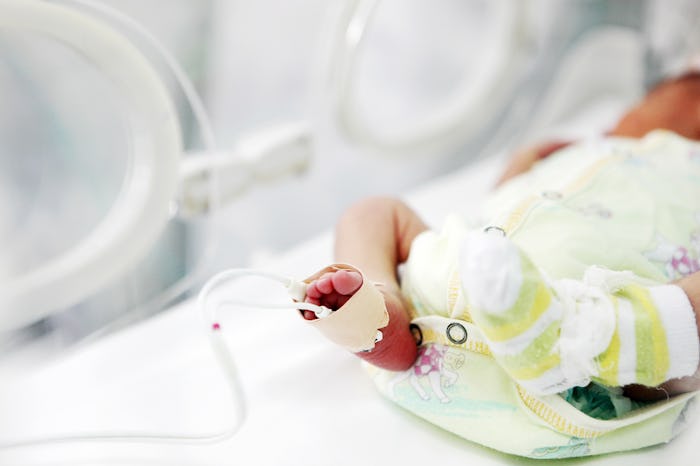Life

Why Will A Baby Be Put In The NICU?
Every parent wants pregnancy and child birth to go by without complications. Many dream of taking their little one home as soon as possible after delivery and cuddling for hours on end. Unfortunately those precious moments at home are not a reality for all parents, at least not right away. There are issues that can crop up during pregnancy or child birth that will cause a baby to need specialized care in the Neonatal Intensive Care Unit (NICU) after delivery. Not that anyone can entirely predict it, but why will a baby be put in the NICU? Facing the possibility that your baby has to go to the NICU can be scary, but understanding that there are so many reasons a baby may go there might help ease a parent's fears. The length and level of specialization will vary depending on what's going on with the baby.
One of the most common reasons babies get sent to the NICU is if they're born prematurely. According to the American Pregnancy website, babies born before 37 weeks are considered "preemies." Many premature babies are not ready to deal with life outside of the womb on their own yet. They often have undeveloped lungs, digestive systems, immune systems, and skin. Technology and medical care techniques in the NICU have made it possible for these babies to survive and eventually thrive enough to go home to their parents. The duration of stay is of course different for every preemie baby and would be determined by their specific medical needs.
Another potential reason for a baby to be admitted to the NICU is if problems occur during the actual labor and delivery process, according to the Kids Health website. A potential labor issue is called prolonged labor, and it's when labor has gone on too long and is possibly putting the baby at risk for infection, explained Web MD. The same website also noted that conditions such as umbilical cord prolapse and umbilical cord compression could present problems for a baby by cutting off necessary oxygen, and would therefore require emergency measures and possibly a visit or stay in the NICU.
The last general reason a baby would get sent to the NICU is if they're showing health issues in the first few days of life. Generally speaking a baby will go to the NICU if needed within the first 24 hours of being born according to Kids Health, but some babies still get admitted after that one day mark. All babies, even if they're looking and acting healthy, will need to undergo newborn screening tests (the tests vary state to state) that check for serious conditions, explained the Baby's First Test website. Healthcare providers will take blood samples, perform auditory exams, and conduct a non-invasive pulse oximetry test on the baby shortly after birth. The results of those tests will determine if the baby needs to receive specialized treatment right away and if admission to the NICU is necessary.
It's not easy facing the possibilities of life-threatening conditions and complications in a newborn baby. It's probably one of the most terrifying things a parent can go through with so many unknowns and ups and downs. An important thing to keep in mind, whether you are anxious about the possibility of your baby going to the NICU or your baby is currently in the NICU, is that the staff will do everything to make your baby comfortable. And that's something every parent can take comfort in.